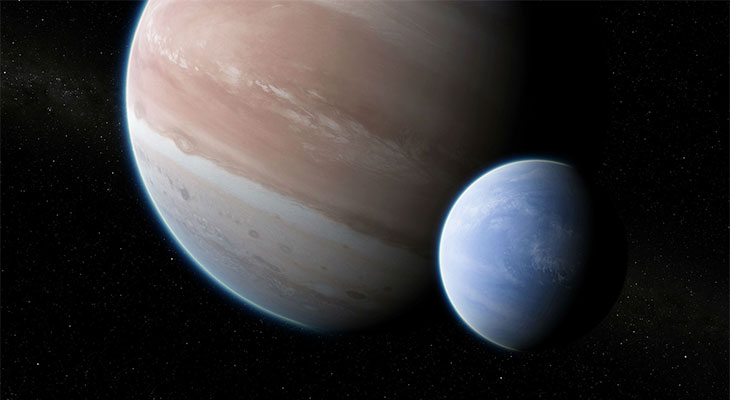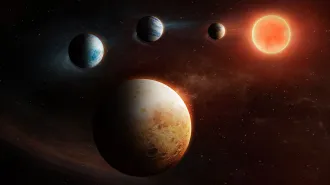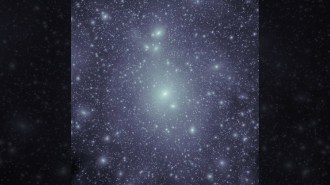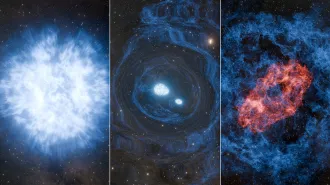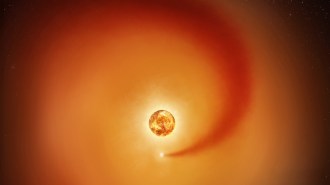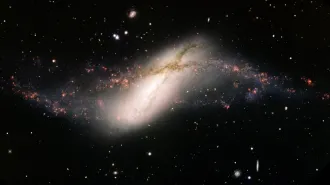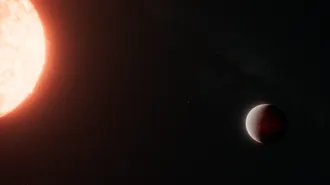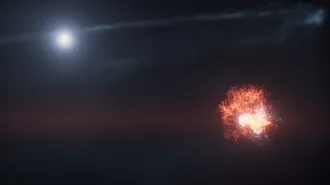These 2018 findings could be big news — if they turn out to be true
Some buzzworthy scientific discoveries need more evidence
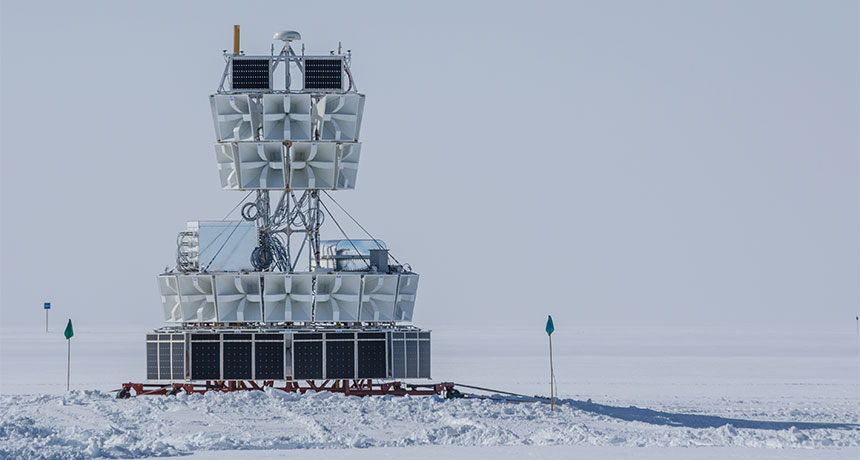
SCIENTIFIC SCUTTLEBUTT The ANITA experiment (shown) detected two mysterious particles while suspended from a balloon above Antarctica, challenging the standard model. Other potentially big scientific finds also generated excitement and skepticism in 2018.
Mike Lucibella/NSF
Here’s our short list of discoveries reported in 2018 that could shake up science, if they hold up.
Not so standard
Dangling from a helium balloon high above Antarctica, the ANITA detector spied two odd signals that hint at the existence of new subatomic particles. Such extremely energetic particles, if they exist, could upend the standard model, the theory that describes the elementary particles that make up matter (SN: 10/27/18, p. 8). Some physicists caution that the signals could have come from something more mundane, such as spacefaring particles called cosmic rays.
Starlight, star bright
The first stars in the universe flickered on by about 180 million years after the Big Bang, radio observations suggest (SN: 3/31/18, p. 6). Unexpectedly strong signals, picked up by a table-sized antenna in the Australian outback, hint at the earliest twinklers and what would be a new phenomenon in the early universe: hydrogen particles interacting with dark matter, the mysterious substance that makes up most of the matter in the universe.
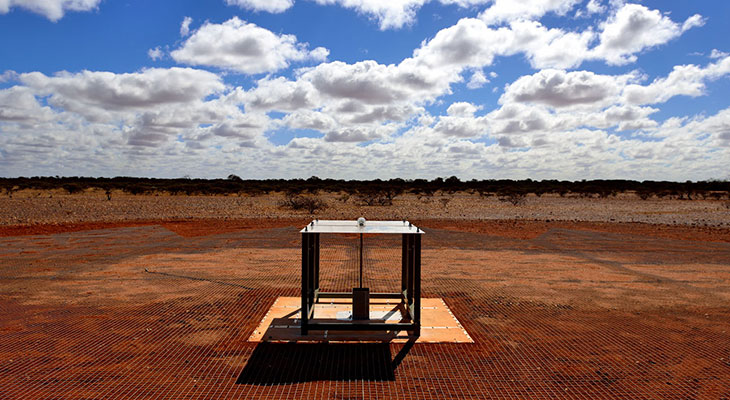
Alzheimer’s goes viral
Two studies add support for a connection between Alzheimer’s disease and herpesvirus (SN: 7/21/18, p. 10). One group of researchers found more DNA from strains of the common virus in brains of Alzheimer’s patients versus healthy people; a second group says that amyloid-beta plaques in the brain, a hallmark of the disease, might be a protective reaction to pathogens like herpesvirus. But the connection, if any, remains unclear, and scientists emphasize that Alzheimer’s is not contagious.
Superconductor suspect
A new hydrogen-rich compound may solve a big problem with superconductors — the materials have to be in a deep freeze to function. Two experiments found lanthanum-hydrogen compounds transmitted electricity without resistance when squeezed between two diamonds at temperatures higher than seen before (SN: 10/13/18, p. 6). That would be a big improvement, researchers say, but the compounds haven’t yet been shown to expel magnetic fields as a true superconductor would.
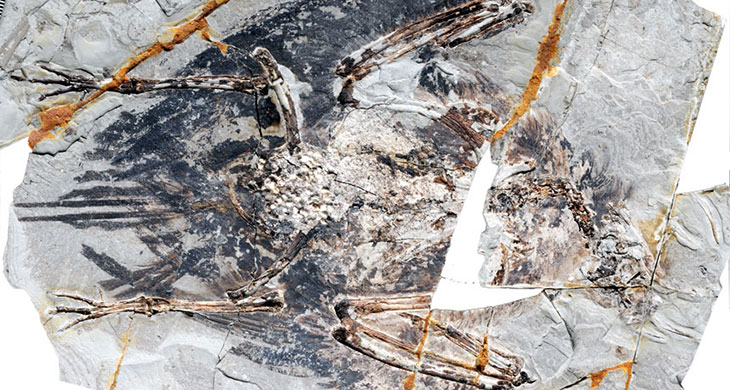
Bird breath
Are white speckles in the chest cavity of a 120-million-year-old bird fossil traces of a respiratory system similar to that of modern birds (SN: 11/10/18, p. 12)? If so, the fossil, found in China, could be the first to preserve lungs of a bird. Some paleontologists aren’t convinced, partly because it’s so rare for delicate lung tissue to survive fossilization.
Exomoon expectations
The Hubble Space Telescope bolstered evidence of the first known moon outside of our solar system (SN: 10/27/18, p. 14). The researchers are cautiously optimistic. A dip in starlight observed earlier by the Kepler space telescope suggested the existence of a Neptune-sized moon orbiting a gas exoplanet 8,000 light-years away (SN: 12/23/17 & 1/6/18, p. 23). Hubble spotted the same dip and saw the planet passing in front of its star earlier than expected, suggesting something was tugging on the planet. A moon, perhaps?
